Overview
TB-500 peptide is a synthetic fragment of thymosin beta-4, a naturally occurring protein studied for its role in cell migration, tissue regeneration, and angiogenesis. Researchers examine TB-500 for its potential to accelerate wound closure, promote vascular growth, and support tissue remodeling in controlled laboratory models. As a focused research compound, TB-500 allows investigation of thymosin beta-4’s core bioactive region without the complexity of the full-length protein.
Compound Breakdown
TB-500: Derived from the amino acid region of thymosin beta-4 most associated with biological activity. Preclinical data suggest TB-500 interacts with actin—the protein central to cytoskeletal structure and cellular motility. By influencing actin polymerization, TB-500 may enhance cellular migration into damaged areas and contribute to repair processes.
Key Findings in Research Models
- Actin Regulation → TB-500 has been observed to regulate actin binding, supporting wound closure and structural recovery in preclinical systems.
- Angiogenesis → Studies indicate TB-500 may promote new blood vessel formation, improving nutrient delivery and tissue remodeling.
- Tissue Regeneration → Research suggests TB-500 influences extracellular matrix stabilization and collagen deposition in laboratory models.
- Systemic Distribution → Animal studies report broad tissue distribution, allowing researchers to assess multi-organ effects.
Research Applications
- Wound Healing → studied for accelerated closure rates and tissue integrity in animal models.
- Cardiac Research → investigated for potential repair activity following ischemic injury.
- Musculoskeletal Models → evaluated for tendon, ligament, and muscle regeneration.
- Angiogenesis Studies → explored for stimulation of vascularization and recovery pathways.
While laboratory results are promising, findings remain limited to experimental models and do not imply any clinical outcomes.
Related Categories
TB-500 is included in the Muscle & Physique and Tissue & Recovery categories. It is often studied in conjunction with BPC-157 and GHK-Cu in connective tissue and regeneration research.
Compliance Statement
All Not Labs products are strictly intended for research use only. TB-500 peptide is not approved for human or veterinary use.
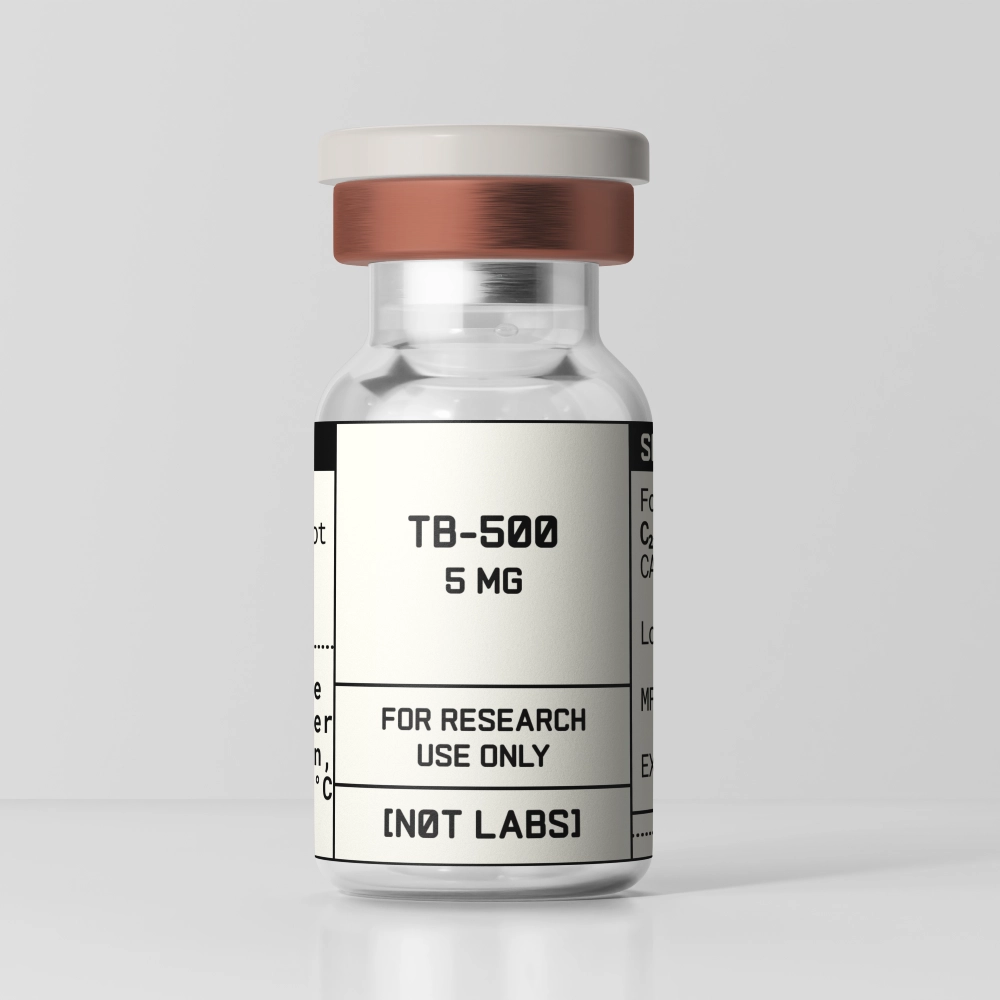
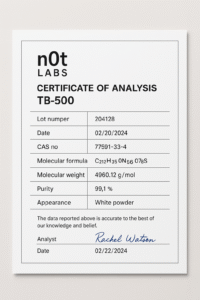
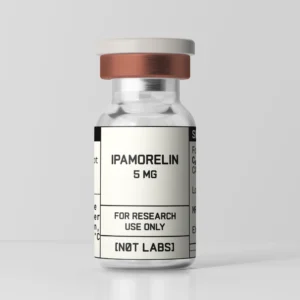
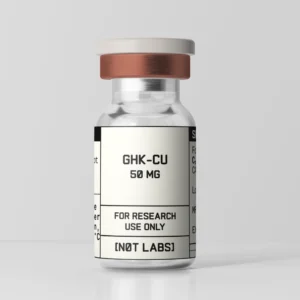
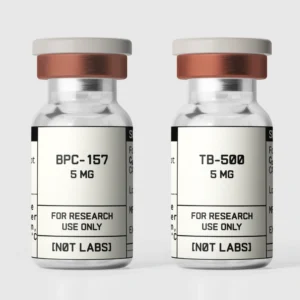
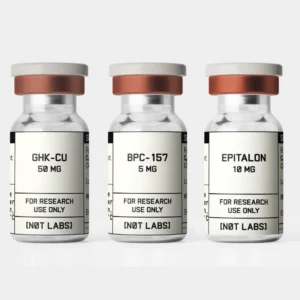
Reviews
There are no reviews yet.